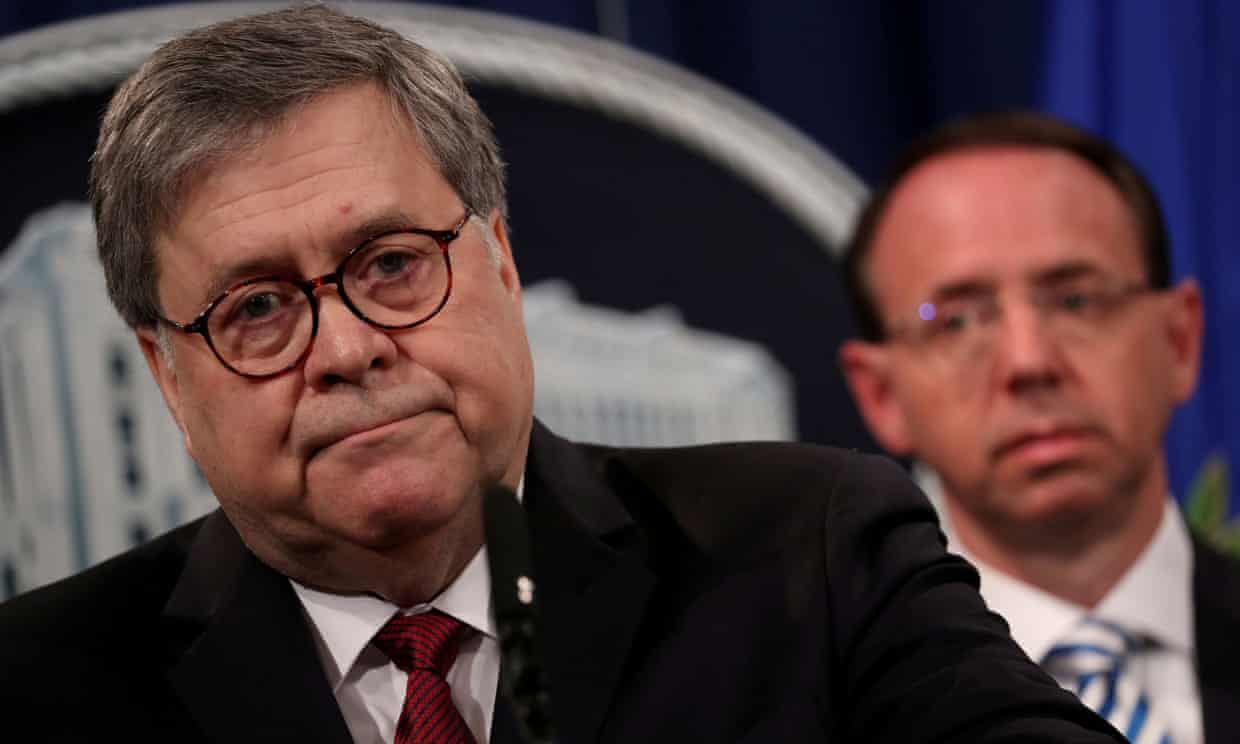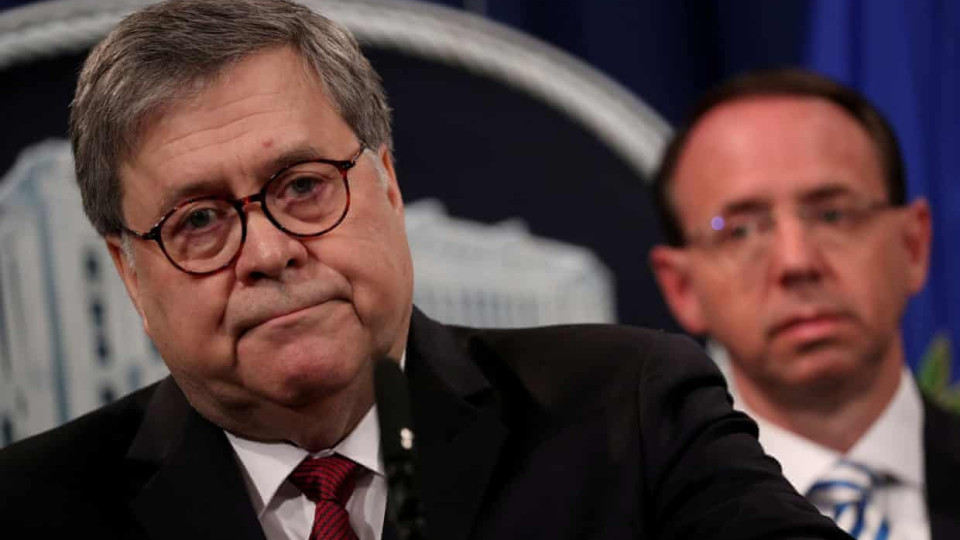
House Democrats voted on Wednesday to hold the US attorney general, William Barr, in contempt of Congress, citing his failure to hand over the full, unredacted version of the special counsel Robert Mueller’s report on Russian interference in the 2016 presidential election. The decision came on a day of escalating tensions between Congress and the White House.
Earlier on Wednesday, the White House invoked executive privilege to block the House judiciary committee’s request for the full Mueller report and underlying evidence.
Later in the day, the House intelligence committee chair, Adam Schiff, subpoenaed Barr for “documents and materials related Special Counsel Robert Mueller’s investigation, including all counterintelligence and foreign intelligence materials produced during the Special Counsel’s investigation, the full unredacted report, and the underlying evidence”. According to a statement from Schiff’s office, the justice department must produce the documents by 15 May.
The Senate intelligence committee, meanwhile, has subpoenaed Donald Trump Jr, two people familiar with the matter told the Associated Press. The panel is calling in the president’s son to answer questions about his 2017 testimony to the panel as part of its investigation into Russian election interference.
It is the first known subpoena of a member of Donald Trump‘s immediate family, and a new sign that the Senate panel is continuing with its own Russia investigation even after the release of Mueller’s report on the same subject.
The Democratic-led House judiciary committee approved the resolution to hold Barr in contempt by a party-line vote of 24-16.
“No person – and certainly not the top law enforcement officer in the country – can be permitted to flout the will of Congress and to defy a valid subpoena,” Jerry Nadler, the judiciary panel’s chairman, said of the decision to hold Barr in contempt. “It is our constitutional duty to respond.”
The contempt vote comes after Barr declined to meet a deadline of 6 May to provide Congress with an unredacted version of Mueller’s report, detailing the special counsel’s findings after a two-year investigation into the Trump campaign’s ties to Russia and possible obstruction of justice by the president.
Barr has instead made a less redacted version of the report available to select members of Congress, who are prohibited from discussing the document with their colleagues.
Members of the judiciary committee spent much of Wednesday morning sparring over the conclusions of the Mueller report, with Republicans accusing Democrats of leading a politically motivated crusade against the president.
But Democrats insisted lawmakers had a right to review the Mueller report in full, pointing out that Mueller had squarely placed the findings of his investigation in the hands of Congress.
The president’s decision to invoke executive privilege and block Democrats’ subpoena, Nadler said, “was a clear escalation in the Trump administration’s blanket defiance of Congress’ constitutionally mandated duties”.
The hearing was held after a series of 11th-hour negotiations between Nadler’s panel and the justice department over the report failed to break the stalemate, prompting Democrats to charge ahead with the contempt vote and the first instance of the party using its House majority to take punitive action against a Trump administration official.
In recent years, the justice department has declined to prosecute contempt cases against the attorney general or administration officials.
The two most recent efforts to compel action from executive branch officials by holding them in contempt of Congress involved Barack Obama’s former attorney general Eric Holder in 2012 and former White House counsel Harriet Miers in 2008. Both cases resulted in lengthy legal battles that outlasted the administration they served.
Democrats have voiced frustration with Barr’s handling of the report, suggesting the attorney general’s actions were designed to protect the president.
Barr has on multiple occasions characterized the report in ways that appeared to absolve Trump of wrongdoing, even though a redacted version of the Mueller report released on 18 April showed nearly a dozen instances in which the president or his campaign sought to obstruct justice.
The Guardian









Leave a comment